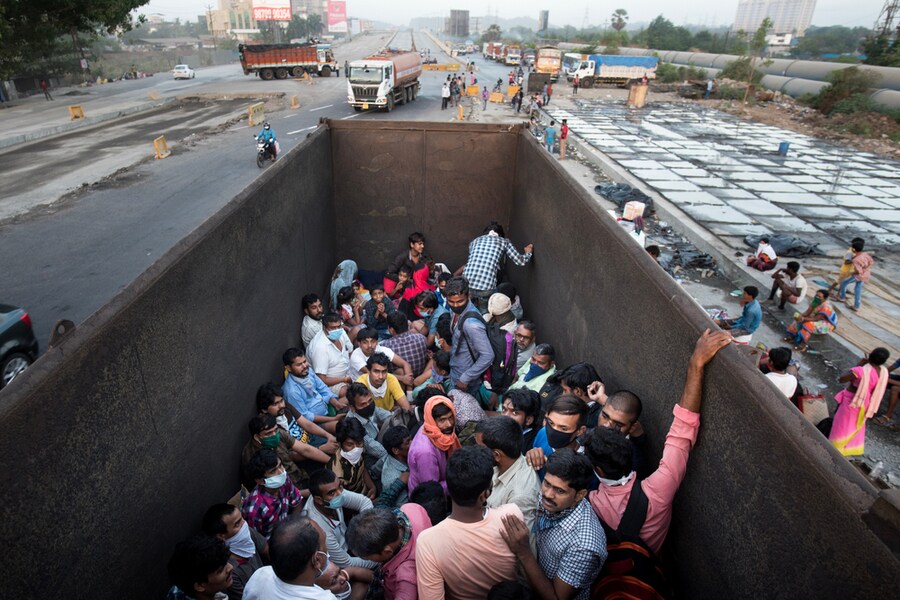
Budget 2021: Financial inclusion means new portal for unorganised labour sector
Finance Minister Nirmala Sitharaman gave no information on what will be used to populate the portal
 Migrant workers on a truck on the Mumbai highway
Migrant workers on a truck on the Mumbai highway
Credit: Shutterstock
The government plans to launch a common portal for the unorganised labour sector. It will collect information on gig workers, construction workers and others, and use it to “formulate health, housing, skill, insurance, credit and food schemes for migrant workers”. Finance Minister Nirmal Sitharaman, however, did not specify what kind of information will be collected from such workers to populate the portal and how schemes will be formulated using the data.
The Covid-19 pandemic saw multiple attempts by the government to monitor the movement of migrant labour across the country. One of them was the National Disaster Management Authority’s (NDMA) National Migrant Information System (NMIS), an online dashboard “to capture the information regarding movement of migrants and facilitate the smooth movement of stranded persons across states”. NMIS was meant to act as a central repository to allow states/districts to seek and give permission for the movement of migrants. It collected data, including name, Aadhaar number, age and mobile number, among other details. The status of NMIS is currently unknown. Forbes India has reached out to the NDMA about how this new portal will interact with NMIS.
The problem with such a portal is that the government has been on a data collection spree ever since Aadhaar was introduced in 2009. The stated aim has been to formulate data-backed policies, but both UPA-II and the Narendra Modi governments have failed to provide evidence of where such data collection activities have led to effective policies. Instead, these data collection exercises have metamorphosed into integration of datasets across ministries and departments so that the government can create 360-degree profiles of its citizens for the purpose of surveillance. Case in point is this report.
Drone-based rural title deeds to cover all states, Union Territories
Sitharaman announced that the SVAMITVA (Survey of Villages Abadi and Mapping with Improvised Technology in Village Areas) scheme will now extend to all states and Union Territories. Under the scheme, rural areas are demarcated using drones and data collected from the drones is used to provide title deeds to owners of residential properties in rural areas. The scheme was introduced in April 2020 and aims to help villagers use their property to seek loans. The finance minister announced that about 1.8 lakh property owners in 1,242 villages have been provided the title deeds thus far.








